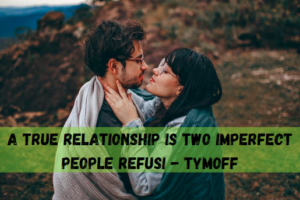Understanding the Ethical Dilemma
Historical Context of Sexuality and Disability
The history of sexuality and disability is complex. In the past, people with disabilities were often seen as asexual or incapable of having sexual desires. This view has changed over time, but it still affects how society treats the sexuality of disabled individuals. Understanding this history helps us see why the topic is so sensitive today.
Balancing Protection and Freedom
One of the biggest challenges is finding the right balance between protecting individuals and giving them freedom. On one hand, we want to keep people safe from harm. On the other hand, we don’t want to take away their rights to make choices about their own lives. This balance is hard to achieve, especially when it comes to intimate relationships.
Legal and Ethical Considerations
There are many laws and ethical guidelines that come into play. These rules are meant to protect people, but they can also limit personal freedom. For example, laws about consent are important for preventing abuse, but they can also make it harder for people with disabilities to have relationships. We need to think carefully about how to apply these rules in a way that respects everyone’s rights.
The ethical dilemma of balancing protection and freedom is at the heart of this issue. We must consider both the safety and the personal rights of individuals when making decisions.
- Historical views on disability and sexuality
- The challenge of balancing safety and freedom
- Legal rules and ethical guidelines
In summary, exploring the intersection of disability and sexuality involves understanding a complex mix of history, protection, freedom, and legal considerations.
Informed Consent and Capacity
Defining Informed Consent
Informed consent means that a person understands what they are agreeing to and can make a free choice. For people with mental disabilities, this can be more complicated. They need to know the facts, understand them, and make a decision without being forced. This includes knowing about the risks and benefits of the activity.
Assessing Capacity for Consent
To see if someone can give consent, we can ask them questions. These questions help us understand if they know what they are agreeing to and if they can make a free choice. For example, we might ask them where babies come from or how to say no to something they don’t want to do. Sometimes, we use tools like the Tool for the Assessment of Levels of Knowledge Sexuality and Consent (TALK-SC) to help with this.
Challenges in Determining Consent
There are many challenges in figuring out if someone can give consent. One big challenge is that a person’s ability to consent can change over time. For example, if they are tired or on certain medications, they might not be able to make a good decision. Also, different types of sexual activities might need different levels of understanding. This means we need to keep checking and educating people to help them make safe choices.
It’s important to remember that everyone has the right to make their own choices, but they also need the right support to do so safely.
Role of Caregivers and Professionals

Responsibilities of Caregivers
Caregivers play a crucial role in supporting the sexual rights and personal freedoms of individuals with mental disabilities. They must balance respecting autonomy with ensuring safety. This involves understanding the individual’s needs, preferences, and boundaries. Caregivers should also be vigilant in recognizing signs of abuse or exploitation and take immediate action if necessary.
Training and Education for Professionals
Professionals working with mentally disabled individuals need specialized training to handle sensitive issues related to sexuality. This training should cover topics such as consent, capacity assessment, and ethical considerations. Regular workshops and seminars can help keep staff updated on best practices and emerging issues.
Creating Supportive Environments
Creating a supportive environment is essential for the well-being of mentally disabled individuals. This includes providing private spaces for intimate activities and ensuring that the environment is free from judgment and stigma. A supportive environment encourages open communication and helps individuals feel safe and respected.
It’s important for caregivers and professionals to work together to create an environment where mentally disabled individuals can express their sexuality safely and with dignity.
By focusing on these areas, we can help ensure that the sexual rights and personal freedoms of mentally disabled individuals are respected and protected.
Risks and Safeguards

Preventing Abuse and Exploitation
When discussing sexual activity among mentally disabled individuals, preventing abuse and exploitation is crucial. We must ensure that these individuals are not at risk of criminal and sexual exploitation due to gaps in policies and services. This involves creating robust systems that can identify and address potential abuse early on.
Ensuring Privacy and Dignity
Balancing privacy and safety is a delicate task. We need to respect the privacy and dignity of individuals while ensuring their safety. For instance, staff members might periodically check on the well-being of a resident during sexual activity, but this should be done in a way that maintains their dignity. Simple measures like “Do Not Disturb” signs or providing a separate room for privacy can make a significant difference.
Implementing Protective Measures
Implementing protective measures is essential to safeguard mentally disabled individuals. This includes legislative, administrative, and social measures to protect them from all forms of exploitation, violence, and abuse. Monitoring facilities and programs designed to serve these individuals can help ensure their safety. Additionally, providing education on how to avoid, recognize, and report instances of exploitation is vital.
Personal Freedom and Sexual Rights
Human Rights Perspective
When we talk about personal freedom and sexual rights, it’s important to remember that everyone has the right to express their sexuality. This includes people with disabilities. According to the World Health Organization, these rights include the ability to choose a partner, decide to be sexually active or not, and pursue a satisfying, safe, and pleasurable sexual life. These rights should be free from coercion, discrimination, and violence.
Sexual Expression as a Quality of Life Issue
Sexual expression is a key part of life for everyone, including those with intellectual and developmental disabilities (IDD). It can greatly enhance one’s quality of life. However, there are many barriers, such as lack of privacy and societal stigma, that can make it difficult for people with IDD to express their sexuality. We need to work towards removing these barriers to ensure that everyone can enjoy their sexual rights.
Balancing Rights and Safety
Balancing the rights and safety of individuals with disabilities is a complex issue. On one hand, they have the right to privacy and consensual sexual relations. On the other hand, there are concerns about their ability to consent and the potential for abuse. It’s crucial to find a balance that respects their rights while also protecting them from harm. This might involve creating supportive environments and providing education to both individuals with disabilities and their caregivers.
Educational Approaches

Sexuality Education for Individuals with Disabilities
Providing appropriate sexual support and education for adults with mild intellectual disabilities (IDs) is a source of considerable debate. We believe that sexuality education should be tailored to the needs of individuals with disabilities. This means using simple language, visual aids, and interactive methods to ensure understanding. It’s crucial to create a safe and open environment where individuals feel comfortable discussing their feelings and questions.
Training Programs for Caregivers
Caregivers play a vital role in the sexual education of individuals with disabilities. They need proper training to handle sensitive topics and provide accurate information. Training programs should cover:
- Understanding sexual development and behavior in individuals with disabilities.
- Effective communication strategies to discuss sexual health and rights.
- Recognizing and preventing abuse and exploitation.
Public Awareness and Advocacy
Raising public awareness about the sexual rights of individuals with disabilities is essential. Advocacy efforts can help break down stereotypes and promote acceptance. Public campaigns, workshops, and seminars can educate the community and foster a more inclusive society.
It’s important to remember that everyone has the right to sexual expression and education, regardless of their abilities. By providing the right support and education, we can help individuals with disabilities lead fulfilling lives.
Case Studies and Real-World Examples

Successful Approaches
In our exploration of this sensitive topic, we have come across several successful approaches that highlight the importance of balancing protection and freedom for mentally disabled individuals. One notable example is a program that provides comprehensive sexuality education tailored to the needs of individuals with disabilities. This program emphasizes informed consent and personal autonomy, ensuring that participants understand their rights and responsibilities.
Lessons Learned from Failures
Unfortunately, not all attempts to address this issue have been successful. There have been instances where the lack of proper safeguards led to abuse and exploitation. For example, a case involving a nonverbal man with cerebral palsy who was sexually abused by a caregiver underscores the need for stringent protective measures. These failures highlight the critical importance of continuous monitoring and support from caregivers and professionals.
Implications for Policy and Practice
The lessons learned from both successes and failures have significant implications for policy and practice. It is essential to develop clear guidelines that protect the rights of mentally disabled individuals while preventing potential abuse. Policies should focus on creating supportive environments that promote personal freedom and sexual rights, ensuring that individuals can express their sexuality safely and with dignity.
Explore our “Case Studies and Real-World Examples” section to see how different people and stories shape the adult entertainment industry. From inspiring journeys to groundbreaking achievements, there’s something for everyone. Don’t miss out on these fascinating insights!
Here are the most beautiful topics
Exploring the Popularity and Misconceptions of Silicone Sex Dolls
Conclusion
In the end, everyone deserves the right to express their sexuality, including those with intellectual and developmental disabilities (IDD). It’s important to ensure they can give informed consent to sexual activities to protect them from harm. While safety is crucial, we must also respect their personal freedoms. Education and proper training for caregivers and professionals can help balance protection and freedom. By doing so, we can support the sexual rights of individuals with IDD while keeping them safe.
Frequently Asked Questions
What is informed consent in the context of sexual activities?
Informed consent means that a person fully understands what they are agreeing to and can make a decision without any pressure. This includes knowing the risks and benefits involved.
How can we determine if someone with a mental disability can give consent?
To determine if someone can give consent, professionals assess their understanding of the situation, ability to make decisions, and awareness of the consequences.
What role do caregivers play in the sexual lives of individuals with disabilities?
Caregivers should support the rights of individuals with disabilities while ensuring their safety. This includes providing education and creating safe environments.
Why is sexuality education important for individuals with disabilities?
Sexuality education helps individuals understand their bodies, rights, and relationships. It can protect them from abuse and help them make informed decisions.
What are the risks of not allowing individuals with disabilities to express their sexuality?
Not allowing sexual expression can lead to frustration, mental health issues, and a lower quality of life. It’s important to balance safety with personal freedom.
How can society support the sexual rights of individuals with disabilities?
Society can support these rights by providing proper education, training caregivers, and advocating for policies that respect and protect the sexual rights of individuals with disabilities.









